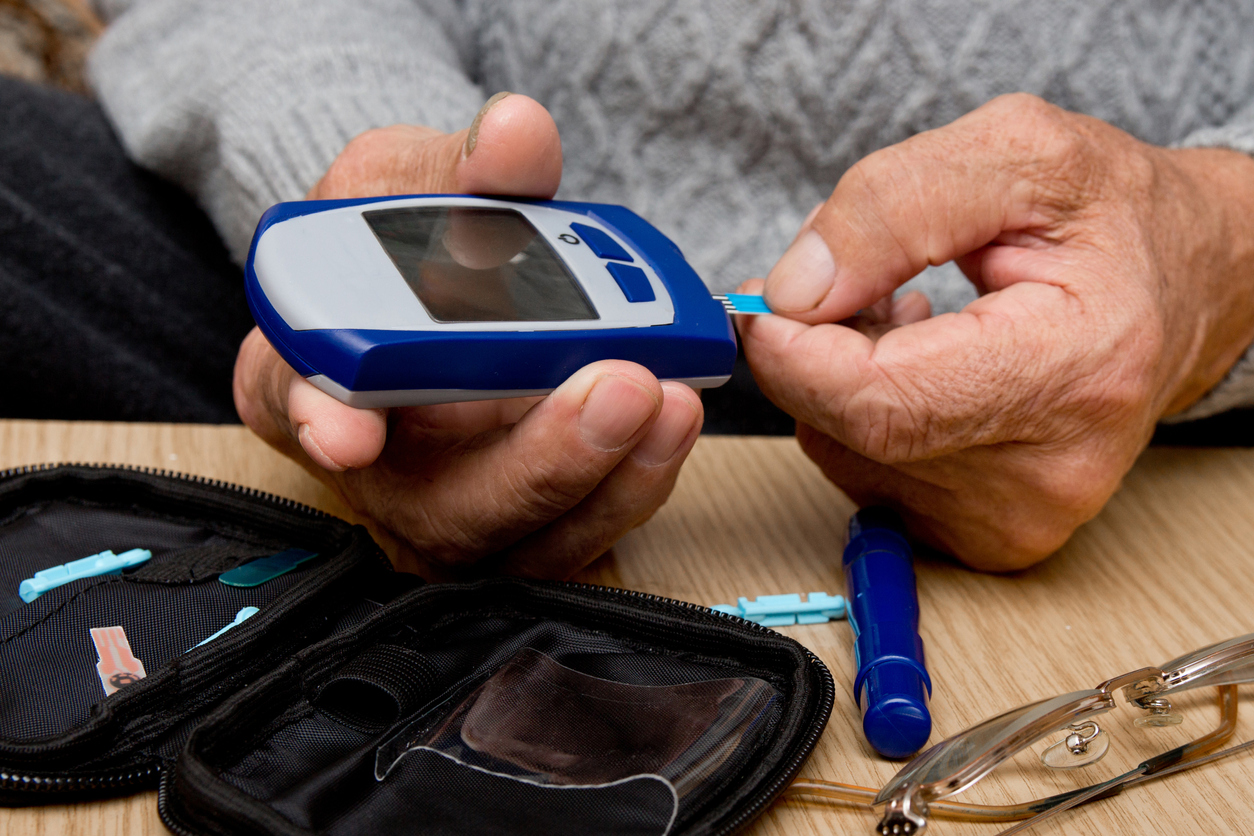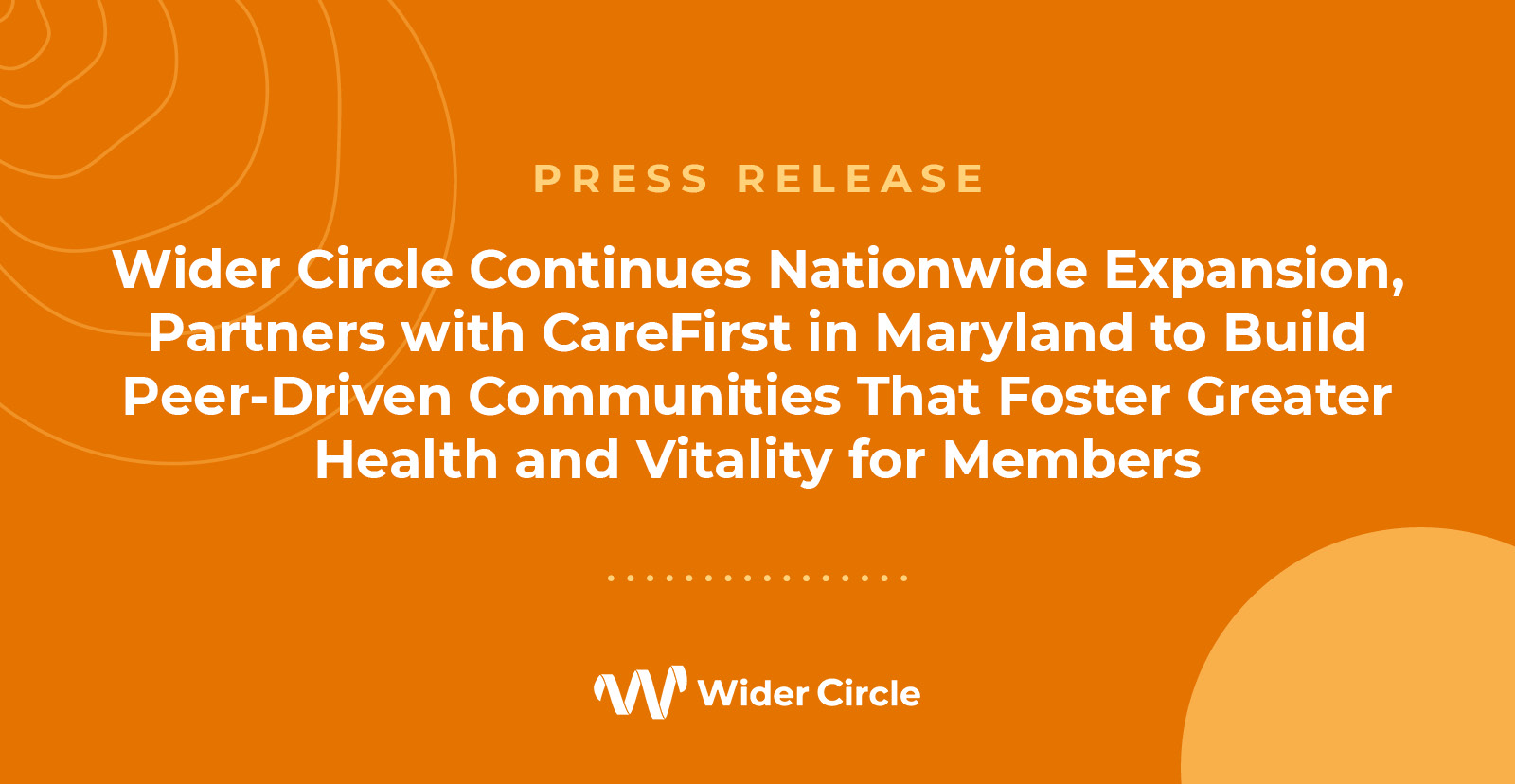
A Q&A with 20-year diabetes patient and awareness advocate, Terry Burke
Despite the ongoing search for a cure, in the last 20 years, the number of adults diagnosed with diabetes has more than doubled. That’s 34 million people in the US alone, making diabetes the 7th leading cause of death in this country (International Diabetes Federation). But it’s not all bad news. We can reverse the trend — particularly for type 2 diabetes which makes up 90% of all cases in the world — if people were more aware of the warning signs and risk factors so they could adopt a healthier lifestyle and, if necessary, seek treatment. Recently, our editorial team had the privilege of talking to Wider Circle strategic advisor Terry Burke. Having lived with type 1.5 diabetes for over 20 years, and raising two sons with early-onset type 1, Terry has a lot of wisdom to share and is living proof that you don’t have to let diabetes be the boss of you to lead a perfectly healthy, joyful life.
Terry, as someone with diabetes type 1.5 — or latent autoimmune diabetes in adults (LADA) — aside from learning how to live with an insulin pump attached to your body 24 hours a day, what are some of the biggest hurdles you had to overcome in order to co-exist with this disease?
Well for me, and millions of others like me, I think there is an emotional and social element to diabetes that others in our community may not even realize exists. We feel a bit discriminated against because we are labeled a “diabetic”. It’s not a diabetic, it’s a person with diabetes. We are a whole person who happens to have this affiliation. Regardless of whether you have type 1, 1.5 or 2, you not only have to come to terms with it, accept it and realize this is your partner for a lifetime, you have to feel comfortable telling others you have it and try to debunk misconceptions. Like diabetes is your fault because you eat too many sweets or don’t exercise enough. There are so many other factors at play. You can be born with the inability to produce enough insulin, the hormone necessary to carry glucose to your cells for food. Or the body can develop insulin resistance over time. Yes, diet and exercise play a large role in preventing and controlling diabetes, but there’s more to keeping your blood glucose levels in check. Emotions, metabolism and even adrenaline can cause levels to rise — and if they stay high that’s where serious complications can occur.
Can you share a favorite Terry Burke life hack for living a better life with diabetes?
Like Michael Jordan, you can’t stop it, you can only hope to contain it. Stress has always been one of my biggest challenges, and it wreaks havoc on your blood glucose levels. I walk every day for 30-60 minutes to relieve stress. A little bit of exercise and fresh air have incredible impact on your stress levels as well as how your metabolism processes your blood glucose and your food intake.
Unfortunately, comfort food is also a stress reliever for me so I really have to watch it — the occasional mac and cheese is fine, but portion control and a balanced diet is very important. So, I guess I have three life hacks: walking, maintaining stress, and eating healthy. The way I look at it, the way a person with diabetes manages their lifestyle should really be the way everyone should.
What kind of impact do you think technology has in helping combat diabetes?
I carry a digital glucose monitor and connect my insulin pump to an app on my phone to keep my diabetes in check around the clock. It is amazing. My father passed away in his sixties due to complications associated with diabetes, and I can’t help but think how much longer he would have been around if he had access to the innovations we have today. Wearables like the Fitbit and the Apple Watch, advanced A1C tests, and more compact at-home monitoring devices have all made combatting and managing complications more convenient and immediate.
You have shared some very valuable insights for managing diabetes. What about prevention? According to the Centers for Disease Control and Prevention (CDC), over a third of Americans have prediabetes and many don’t even know it. What is the difference between prediabetes and diabetes, and what should people look out for?
Prediabetes is a condition where blood sugar levels are higher than normal, but not high enough yet to be diagnosed as type 2 diabetes. If you have prediabetes, the cells in your body don’t respond normally to insulin. Your pancreas makes more insulin to try to get cells to respond. Eventually your pancreas can’t keep up, and your blood sugar rises, setting the stage for prediabetes—and type 2 diabetes down the road. The tricky thing is you can have prediabetes for years but have no clear symptoms, so it often goes undetected.
Look for signs like gaining too much weight, a family history of diabetes, less than 3 days a week of physical activity, and if you are a woman, ever having gestational diabetes during pregnancy. To be safe, make an appointment with your doctor to get your blood sugar tested if you have any of these risk factors.
Aside from digital health advancements, how do you think our health system can do better? Where do we go from here?
30 years ago was supposed to be the decade for the cure. And now here we are with a lot of ways to live better with the disease. But I am still waiting for the day my kids and others can benefit from a cure. For the day they can stop worrying. In the meantime, I urge all my friends battling this disease to stay educated and lean on your health and social network for support. Family and friends, primary care physicians, and community groups can all support better health. For example, in honor of National Diabetes Month, Wider Circle’s community facilitators are holding several virtual and in-person diabetes awareness and prevention seminars for members and their friends.
Thank you so much for sharing your wisdom with us, Terry. I know you are a huge film buff. How about we call this interview a wrap with your favorite movie quote?
Since Wednesday was Veteran’s Day, in honor of all who served, I’ll give a quote from the movie Black Hawk Down. A soldier in Sergeant Struecker’s unit is concerned about going back into battle and Struecker says: “It’s what you do right now that makes a difference.”
I think that is how we should all view diabetes during Diabetes Awareness Month. What we do right now to live a healthy and happy life with this disease makes the difference.

Terry Burke (back row, far right) with a group of fellow walkers
at the 2013 JDRF One Walk fundraiser in Detroit, MI.
Team Burke raised over $35,000 for diabetes type 1 research.
The information included in this blog is for educational purposes only and is not intended to be a substitute for professional medical advice.


